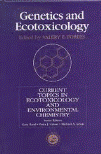Papers in the Biological Sciences

Valery Forbes Publications
Document Type
Article
Date of this Version
2007
Abstract
It has been claimed that bisphenol A (BPA) induces superfeminization in the freshwater gastropod, Marisa cornuarietis. To explore the reproducibility of prior work, here we present results from a three-laboratory study, the objectives of which were to determine the mean and variability in test endpoints (i.e., adult fecundity, egg hatchability, and juvenile growth) under baseline conditions and to identify the sources of variability. A major source of variability for all of the measured endpoints was due to differences within and among individuals. With few exceptions, variability among laboratories and among replicate tanks within laboratories contributed little to the observed variability in endpoints. The results highlight the importance of obtaining basic knowledge of husbandry requirements and baseline information on life-history traits of potential test species prior to designing toxicity test protocols. Understanding of the levels and sources of endpoint variability is essential so that statistically robust and ecologically relevant tests of chemicals can be conducted.


Comments
Published in Ecotoxicology and Environmental Safety 66 (2007), pp. 309-318; DOI: 10.1016/j.ecoenv.2006.10.014. Copyright © 2007 Elsevier Inc. Used by permission.